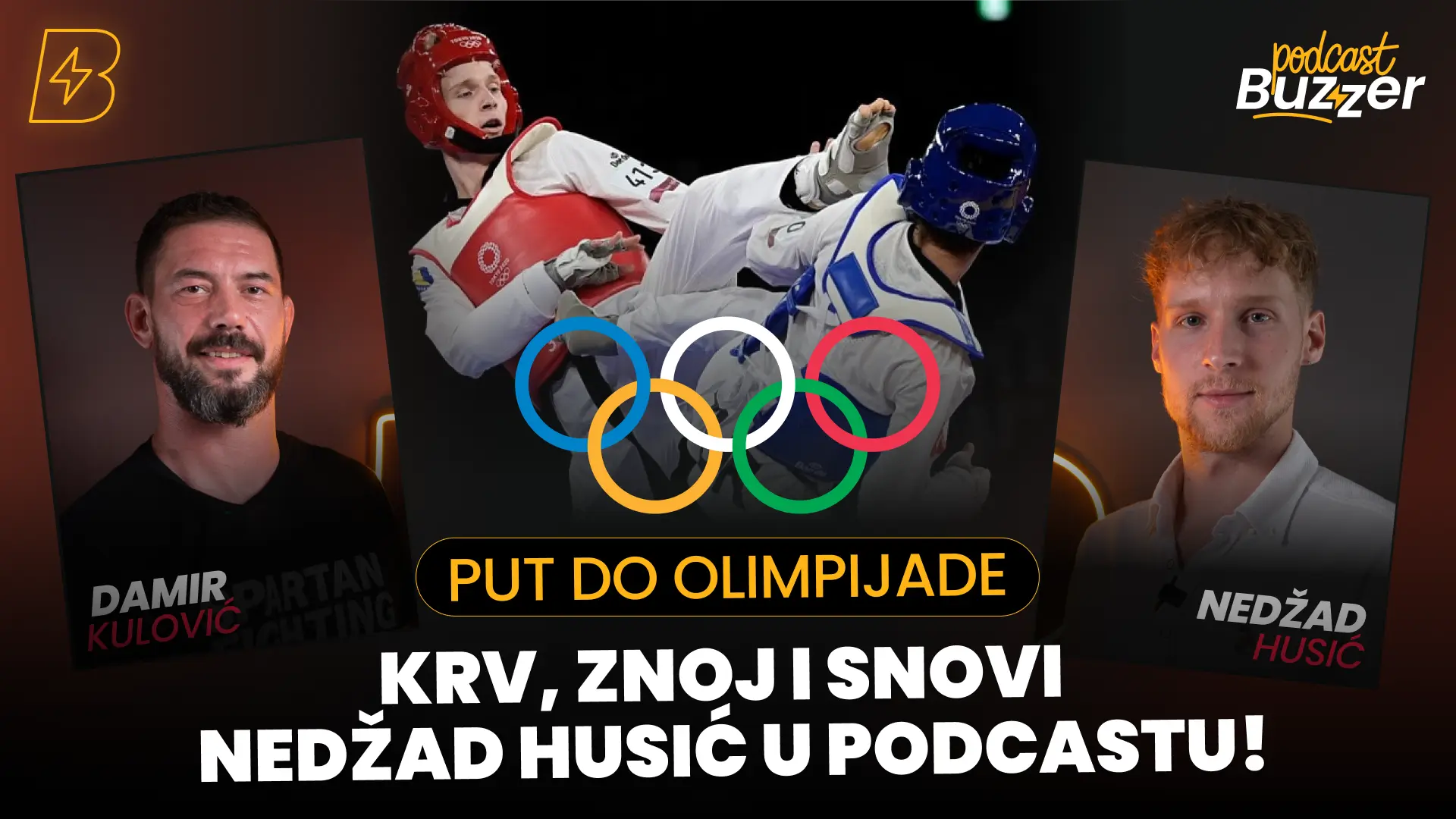

In the latest episode of the Buzzer podcast, guest Nedžad Husić – one of Bosnia and Herzegovina’s most accomplished taekwondo athletes – shared his journey from local beginnings to the Olympic arena. Born in Sarajevo, Husić comes from a family of martial artists. His father, the founder and coach of a taekwondo club, now serves as the head coach of the national team.
Husić is best known for finishing fifth at the Olympic Games, winning three European senior medals, and competing at several World Championships. Together with Larisa Cerić, he is the only Bosnian athlete to have won a medal at the European Games, marking a historic achievement for the nation.
Husić’s approach to training is built on a structured system: conditioning and endurance work, followed by technical drills, and finally, sparring and fight simulations. He typically trains twice a day, with one or two rest days per week – a system inspired by his experience training with the British national team.
According to Husić, short but high-quality training sessions yield far better results than long, exhausting ones. “Focus and freshness are crucial for peak performance,” he explains, emphasizing that this philosophy is shared by successful teams like those from Russia and Great Britain.
When it comes to fighting style, Husić’s signature move is the Shakun – a technique often overlooked by others but one he uses to great effect. He also favors “dwi chagi”, a spinning kick to the body known for its power and precision when executed correctly.
Husić doesn’t shy away from discussing the “dirty” side of combat sports. Although taekwondo prioritizes accuracy over damage, some fighters exploit rule loopholes – such as sensitive armor sensors that register even the lightest touch as a point. “Everyone looks for an edge,” he admits, “but 90% of fighters still compete fairly.”
Husić began training at just three years old, following in his father’s footsteps. At first, he disliked competitions due to stress and large crowds, but over time, taekwondo became an inseparable part of his life. “If I skip training for more than a day, I feel like something’s missing,” he says with a smile.
If given the chance to train with anyone, Husić would choose Ulugbek Rashitov of Uzbekistan – the fighter who defeated him at the Tokyo Olympics and went on to win two consecutive Olympic gold medals. Rashitov’s flexibility, timing, and precision have made him a legend in the sport.
“The Uzbeks built a system that produces champions,” Husić explains. “Their secret is simple – fewer techniques, but thousands of repetitions and perfect timing.” He adds that he would love to attend their training camps to learn more about their approach.
Despite his international achievements, Husić highlights that financial challenges remain a major obstacle for Bosnian athletes. Most competitors pay for their own tournaments without federation or sponsor support. “In Bosnia, sports often rely on personal sacrifice and passion. Without a proper support system, many young talents simply give up,” he says.